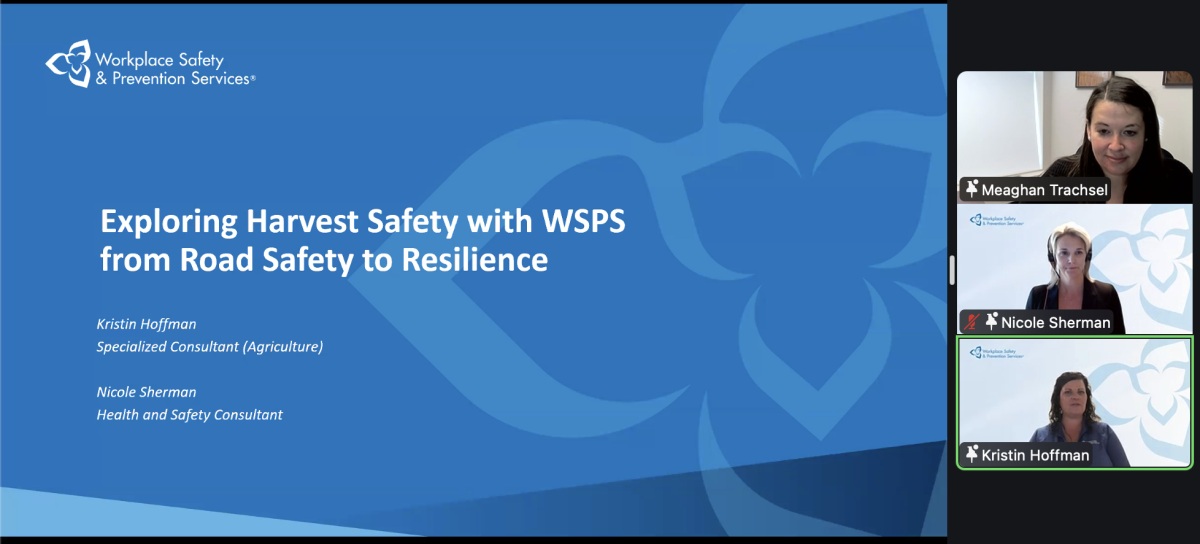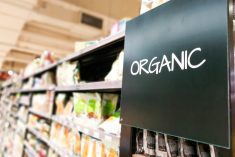A look at organic regulation across the country by the Canadian Organic Trade Association (COTA) shows a hodge-podge of support, despite national standards in existence for eight years.
In a report released Monday, COTA called out Ontario, the largest market by far for organic products, for having no organic regulations. Five other provinces, including some of the largest markets for organic products, British Columbia, Quebec, Manitoba, Nova Scotia and New Brunswick have regulations governing organic standards.
The result is confusion for consumers and farmers, said Tom Manley, president of the Organic Council of Ontario (OCO).
Read Also

Exploring Harvest Safety
Kristin Hoffman of WSPS explains measures for increased farm safety around harvest season
“Some farmers are not certifying, some are making unsubstantiated claims. It’s an impediment to organic conversion,” he said.
Individual farms can become certified by several organic certification bodies, and major buyers require it. However, there are no provincial requirements for certification for someone to claim they produce organically.
Federal standards were introduced in 2009 — and most of the provinces with standards have simply adopted the federal standards.
Ontario could do the same, with regulation or legislation as required and some enforcement, said Manley. The province already enforces food regulations, so he doesn’t expect it would require a lot more staff.
“I do understand that the provincial government is cash-strapped, but I don’t imagine this would be a big budget item.”
There does, however, appear to be a lack of political will.
When the OCO has talked to members of the provincial Parliament (MPPs), most think that because there is a system of certification, that the job is done, says Manley. There’s also resistance to putting any more regulation onto rural Ontario, which Manley said he understands.
A third factor is resistance within the organic sector itself. Provincial standards would require organic certification, which Manley says smaller farmers see as time-consuming and expensive. Many of them currently do not certify.
“That’s fair enough,” said Manley. “How else can we serve these folks? Other provinces have some sort of cost-sharing.”
COTA’s report, titled “The State of Organics: Federal-Provincial-Territorial Performance Report 2017” encouraged other provinces to also adopt organic standards, and made several other recommendations.
There’s a lack of data in the organic sector. Some provinces are better than others. Quebec stood out in most of the evaluated categories, including data collection, compared to other provinces. Federally, the report said, more could be done within existing agriculture data collection tools, such as the agricultural census, the farm financial survey and the HS code system.
The report called for an increase to organic-specific programs and policies across the country. The significant difference among provinces creates an uneven playing field, the report said.
Overall, Quebec was identified as a leader in organic regulation and support, with British Columbia and Manitoba next strongest in their support. The federal government also got good marks in the rating system. Ontario, Alberta, Saskatchewan along with some of the smaller Maritime provinces got the lowest ratings.
— John Greig is a field editor for Glacier FarmMedia based at Ailsa Craig, Ont. Follow him at @jgreig on Twitter.
















